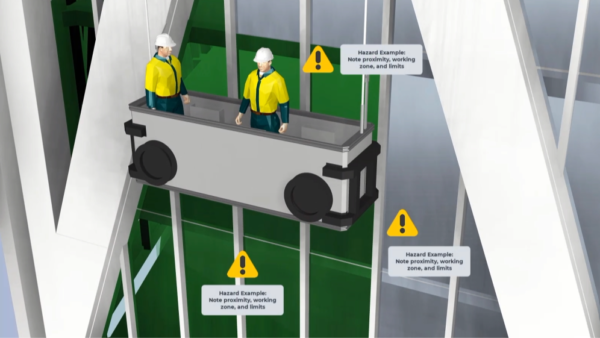By 2016, all centrally procured government construction projects, no matter their size, must be delivered using building information modelling (BIM). This will extend across the supply chain, from the largest contractor to the smallest supplier, and it is expected that this will lead to the industry-wide adoption of BIM as the benefits become more widely understood.
Across the sector, organisations must get up to speed or risk missing out on valuable opportunities and losing competitive edge.
Since 2012, the National Federation of Builders (NFB), supported by the Construction Industry Training Board (CITB) has been developing programmes of activity to help SMEs in construction adopt BIM within their organisations. Its BIM: ready or not? survey identified a high level of awareness but a low level of understanding, and a cynicism that what was being mandated at central government level would not filter down to local authorities and other public sector procurers, the traditional workplace of the SME.

NFB’s Paul Bogle
Delivered through NFB Business & Skills, the federation’s skills and development arm, the early part of programme focused on raising levels of understanding, particularly in relation to BIM Level 2 which is the requirement for the 2016 deadline.
The target of Level 2 works on the basis of each phase of the construction project creating its own model, but project data being shared electronically through a “common data environment”. The NFB Client Readiness Survey was also commissioned to identify the readiness of local authorities and other public procurers for BIM and their future plans.
Since the publication of the NFB Client Readiness Survey, the NFB has also been working with clients to help assess the supply chain’s capabilities. A series of events in June, in association with YORbuild, the Yorkshire-based construction framework, invited clients and suppliers from across the industry to attend a series of focused BIM: The YORbuild Way workshops.
The aim of the events was to challenge and explore the implications of BIM from both client and supplier perspectives and also include an overview of the re-procurement of the YORbuild 2 framework which was scheduled to start in late summer 2014.
The NFB BIM Exemplar programme took a group of 16 companies of different sizes and levels of capability and hand-held them through the process of BIM implementation. They, in turn, are now sharing their expertise with others.
Barnes Construction is one of the exemplars and sees BIM from many angles. For Barnes, BIM is a way of improving efficiency and, therefore, gaining competitive advantage. It is also a way of keeping existing staff and attracting new, younger staff by demonstrating that it has an eye firmly on the future. BIM is also a way of helping to manage costs: as costs come down through efficiency, those savings help to offset cost increases for training, materials and labour.
The NFB’s programme of activity also offered knowledge transfer workshops and webinars, aimed at increasing the ability of participants to identify the barriers, challenges and benefits SMEs face when taking the first steps to implementing BIM within their organisations. For those companies which had taken the strategic decision to adopt BIM, NFB Business & Skills was able to offer bespoke consultancy support which, based on a company’s current maturity levels and their future aspirations, developed robust action plans to meet their needs.
In 2013, based on the experiences and lessons learned from the previous projects, NFB Business & Skills launched its BIM: Build & Sustain programme which focused on providing support, not only to those companies that were looking to begin their BIM journey, but also to continue its work with the innovators and early adopters which now needed more strategic support.
Karen Dawes, NFB training manager, says: “BIM is an ever-evolving process – companies can be BIM-ready one day and not the next. You can’t simply go out and buy ‘BIM in a box’. The level of knowledge, skills, understanding and capability required is entirely dependent on the role an organisation plays within the supply chain of any given project.
Our BIM: Build & Sustain project does just that and provides relevant and effective support to companies and is constantly being reviewed and developed to meet the needs of the industry.”
The CPD-accredited NFB BIM Champion Programme is a case in point. A BIM Champion is equipped with the required knowledge and skills to drive change throughout their organisation, aligning processes and systems in a collaborative environment, allowing for the production and sharing of information.
The NFB is handling an increasing number of enquiries, generated by heightened public sector client interest. This, coupled with the looming 2016 deadline, is raising the profile of BIM with SMEs.
Through its BIM: Build & Sustain project, and by working with other trade federation and industry bodies, NFB Business & Skills will continue to work towards achieving the common goal of training SMEs and supporting them on their BIM journey, thus enabling them to continue to compete in markets that could otherwise become unavailable to them.
For more information contact the NFB Business & Skills team on 0845 057 0042 or visit the NFB Business & Skills website











